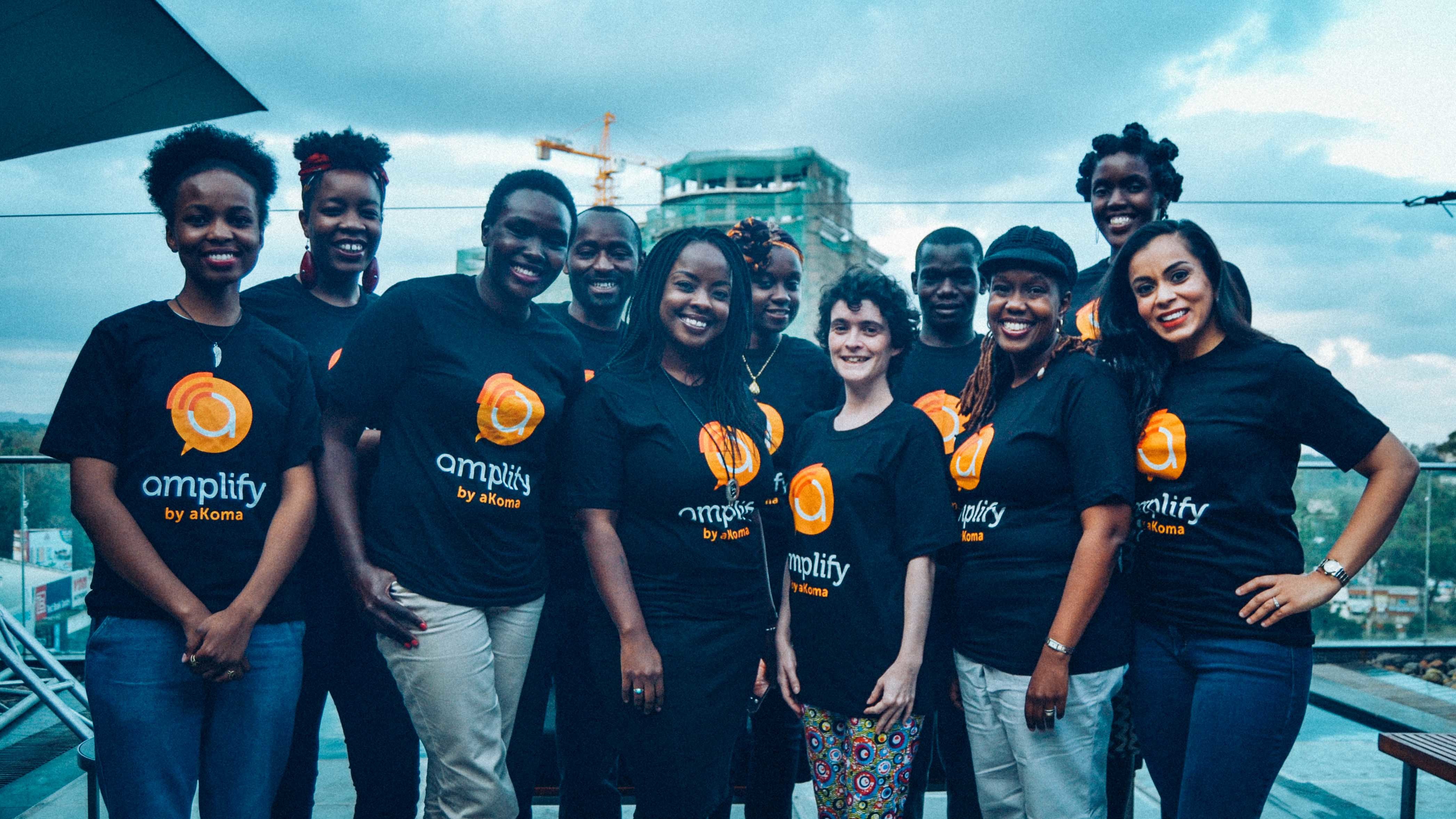
An African Megaphone: Young Storytellers Take Back Continent’s Stories
First Cohort of Amplify Fellows Set to Graduate
A fresh storytelling initiative is seizing Africa’s blogosphere by storm, providing the continent’s emerging media talent with an opportunity to polish their reporting and storytelling skills, all while challenging the idea of Africa as a ‘country’ rife with poverty, corruption, disease and war.
As they graduate next week, the first class of aKoma Media’s Amplify Fellowship – Africa’s first paid fellowship for content creators – will unleash the full breadth of its talents on the world. Together with the incoming class of 25 bloggers from Nigeria, Kenya, Rwanda, Ghana and South Africa, Amplify Fellows are creating a ‘megaphone for Africa.’
“For too long, the narratives around Africa have largely come from external sources,” says Zain Verjee, who co-founded aKoma with noted media production executive Chidi Afulezi. “aKoma is setting itself a big remit to place Africa’s stories in the hands of Africans, inside and outside of the continent, to make Africa come alive.”
In partnership with Mastercard Foundation, aKoma led and launched the Amplify Fellowship in 2016, providing 25 emerging bloggers from Kigali (Rwanda), Nairobi (Kenya) and Lagos (Nigeria) with the opportunity to sharpen their skills as writers, build formal careers in the media, and above all, to galvanize the African blogosphere with stories that reclaim the continent’s voice.
“Amplify is a place where talented storytellers can coalesce, collaborate and curate together, a space where individuals can build a career out of their talent” explains Zain. “Fellows have developed the art of storytelling at a creative level, that’s really a first goal for the project. But creativity on its own doesn’t pay the bills, so we are providing the structure, discipline and tools for the Fellows to build a more formal career path around content creation. For instance, how can they develop content and tell interesting stories that subsequently generates an income for them?”
Amplify Fellows are breaking the mould with original stories, whether it is Shayera Dark’s letter from Mother Africa to African boys or her homage to African hair, Olumide Adeleye’s exploration of xenophobia in South Africa, or Rosa Whitaker’s musings on how President Donald Trump can “Make America great again” in Africa. But it is the spirit of community among the writers, coupled with their aspirations to share what they have learned and to mentor others, that sets the Amplify Fellows apart.
“The big takeaway from the fellowship for me has been working with artists and creatives with skills sets different from mine in conceiving projects,” explains IfeOluwa Nihinlola, a Lagos-based Fellow. “As a blogger, my entire process consisted of scribbling in my journal and publishing on WordPress. But there’s a lot of value in seeing how photographers and filmmakers view a project. Collaboration is something I now appreciate more and would teach others someday when I get the opportunity.”
To IfeOluwa, blogging is an opportunity to reflect the granular diversity of ‘African’ and ‘Nigerian’ stories.
“I don’t know how to properly define a big, untold Nigerian story. The Wedding Party earning N 400 million at the box office is as much of a ‘big’ story as residents of Lagos slums forcefully ejected by the government in a bid to clean up the city. I’d rather have the small stories told well, with skill and grace, than a single ‘big’ story that will try to reflect a Nigerian experience that is so diverse the adjective ‘Nigerian’ almost has no meaning.”
For Kigali-based Fellow Gloria Iribagiza, Amplify has also been an opportunity to re-tell riveting stories from an African perspective and in the context of an emerging Rwandan blogosphere.
“I’m currently at a place where I am intrigued by the concept of movement in my country,” she explains. “The fast pace at which Rwanda is developing requires that more writers and bloggers begin to contribute their part in recording the success stories that are all around us. Writing and publishing more articles, short stories and books especially about what the youth are doing is something I would like to continue doing.”
But above all, Gloria explains, sharing her freshly polished skills and knowledge is part of her commitment to the growth of good storytelling in Rwanda and elsewhere on the continent.
“Mentorship is a two-way process. I have learned that the learning process never stops. We can never reach a place where we think we have learned everything that partakes to life. And that’s why to be placed in a position where I can share the skills I have with another storyteller is another learning opportunity for me. I get to unlearn and learn from various perspectives on a topic which challenges me to write responsibly.”
“The blogosphere in Africa is vibrant, it’s booming and headed only upwards,” says Zain. “We now have an entire generation maturing who will only know a mobile-first means of consuming content, be it news, novels, the weather, stock markets, entertainment, you name it. And because of the digital nature of content consumption, we are developing a vast catalogue of stories, thoughts, images, narratives and ideas at a ferocious pace.”
Above all, Zain explains: “We now have the opportunity and the momentum to rebuild and take back our African voice in a digital landscape.”


